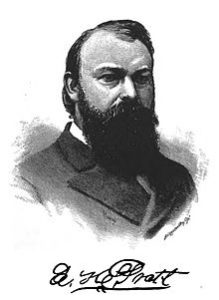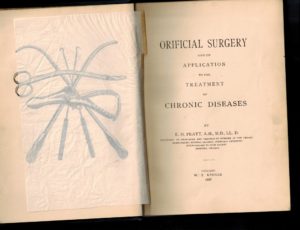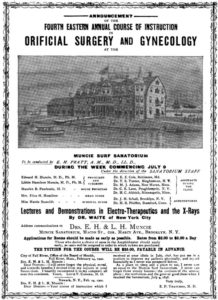
Dr. Edwin Pratt
Medicine in the 1800s was not always founded on firm data; it often based cures solely on (what someone thought) were reasonable assumptions. Dr. Edwin Hartley Pratt was a homeopathic physician who eventually wrote in his 1891 book, The Philosophy of Orificial Surgery, that there was one predisposing cause for all forms of chronic diseases: “and that is a nerve-waste occasioned by orificial irritation at the lower openings of the body.”
In the September, 1893 issue of a journal called The New Way, an unattributed article presented an example of “orificial philosophy.” The author referred to an article in the Journal of Nervous and Mental Disease which discussed the abatement of insanity in cholera patients. Sixty patients were sickened by the disease at the Bonneval Asylum in France. During its peak manifestation in their bodies, “maniacs” were relieved of all symptoms of insanity, though they gradually returned as the victims got well. Melancholics were also helped, and patients who were melancholic or only slightly insane seemed to recover their sanity permanently.

Pratt’s Book on the Treatment of Chronic Diseases
Though the Journal of Nervous and Mental Disease didn’t speculate about why cholera helped relieve insanity, The New Way did. “Cholera is a disease of the bowels, and results in their violent and complete evacuation and dilatation of the anal sphincter. Following this comes a compete relaxation of the whole muscular system.”
This gave the brain relief “and reason was restored while the condition lasted,” the author continued. “But as soon as the patient recovered from the cholera the relaxed condition of the muscular system disappeared and the sphincter became tight again.”

One of Pratt’s Sanatoriums
The result? The inhibition of the sympathetic nervous system, “deranged circulation and a return of insanity.” The anonymous author then wrapped up his case with the declaration that “seven-tenths of the cases of insanity, irritation and derangement will be found at the outlets of the body.”*
- September 1893, Vol 1, No. 5, p. 125